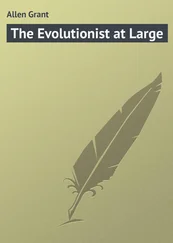Grant Allen - Strange Stories
Здесь есть возможность читать онлайн «Grant Allen - Strange Stories» — ознакомительный отрывок электронной книги совершенно бесплатно, а после прочтения отрывка купить полную версию. В некоторых случаях можно слушать аудио, скачать через торрент в формате fb2 и присутствует краткое содержание. Жанр: foreign_prose, на английском языке. Описание произведения, (предисловие) а так же отзывы посетителей доступны на портале библиотеки ЛибКат.
- Название:Strange Stories
- Автор:
- Жанр:
- Год:неизвестен
- ISBN:нет данных
- Рейтинг книги:3 / 5. Голосов: 1
-
Избранное:Добавить в избранное
- Отзывы:
-
Ваша оценка:
- 60
- 1
- 2
- 3
- 4
- 5
Strange Stories: краткое содержание, описание и аннотация
Предлагаем к чтению аннотацию, описание, краткое содержание или предисловие (зависит от того, что написал сам автор книги «Strange Stories»). Если вы не нашли необходимую информацию о книге — напишите в комментариях, мы постараемся отыскать её.
Strange Stories — читать онлайн ознакомительный отрывок
Ниже представлен текст книги, разбитый по страницам. Система сохранения места последней прочитанной страницы, позволяет с удобством читать онлайн бесплатно книгу «Strange Stories», без необходимости каждый раз заново искать на чём Вы остановились. Поставьте закладку, и сможете в любой момент перейти на страницу, на которой закончили чтение.
Интервал:
Закладка:
With a terrible effort of will he pulled his face quite straight again, and assumed his usual grave and quiet demeanour. For a full minute he stood looking at himself in the glass; and then, fearful that some one else would come and surprise him, he hurried down the remaining steps, and rushed out into the streets of London. Which way he turned he did not know or care; all he knew was that he was repressing by sheer force of muscular strain a deadly impulse to pucker up his mouth and draw down the corners of his lips into one-sided grimaces. As he passed down the streets, he watched his own image faintly reflected in the panes of the windows, and saw that he was maintaining outward decorum, but only with a conscious and evident struggle. At one doorstep a little child was playing with a kitten; Arthur Greatrex, who was a naturally kindly man, looked down at her and smiled, in spite of his preoccupation: instead of smiling back, the child uttered a scream of terror, and rushed back into the house to hide her face in her mother's apron. He felt instinctively that, in place of smiling, he had looked at the child with one of his awful faces. It was horrible, unendurable, and he walked on through the streets and across the bridges, pulling himself together all the time, till at last, half-unconsciously, he found himself near Pimlico, where the Aburys were then living.
Looking around him, he saw that he had come nearly to the corner where Hetty's little drawing-room faced the road. The accustomed place seemed to draw him off for a moment from thinking of himself, and he remembered that he had promised Hetty to come in for luncheon. But dare he go in such a state of mind and body as he then found himself in? Well, Hetty would be expecting him; Hetty would be disappointed if he didn't come; he certainly mustn't break his engagement with dear little Hetty. After all, he began to say to himself, what was it but a mere twitching of his face, probably a slight nervous affection? Young doctors are always nervous about themselves, they say; they find all their own symptoms accurately described in all the text-books. His face wasn't twitching now, of that he was certain; the nearer he got to Hetty's, the calmer he grew, and the more he was conscious he could relax his attention without finding his muscles were playing tricks upon him. He would turn in and have luncheon, and soon forgot all about it.
Hetty saw him coming, and ran lightly to open the door for him, and as he took his seat beside her at the table, he forgot straightway his whole trouble, and found himself at once in Paradise once more. All through lunch they talked about other things – happy plans for the future, and the small prettinesses that lovers find so perennially delightful; and long before Arthur went away the twitching in his face had altogether ceased to trouble him. Once or twice, indeed, in the course of the afternoon he happened to glance casually at the looking-glass above the drawing-room fireplace (those were the pre-Morrisian days when overmantels as yet were not), and he saw to his great comfort that his face was resting in its usual handsome repose and peacefulness. A bright, earnest, strong face it was, with all the promise of greatness already in it; and so Hetty thought as she looked up at it from the low footstool where she sat by his side, and half whispered into his ear the little timid confidences of early betrothal.
Five o'clock tea came all too soon, and then Arthur felt he must really be going and must get home to do a little reading. On his way, he fancied once he saw a street boy start in evident surprise as he approached him, but it might be fancy; and when the street boy stuck his tongue into the corner of his cheek and uttered derisive shouts from a safe distance, Arthur concluded he was only doing after the manner of his kind out of pure gratuitous insolence. He went home to his lodgings and sat down to an hour's work; but after he had read up several pages more of "Stuckey on Gout," he laid down the book in disgust, and took out Helmholtz and Joule instead, indulging himself with a little desultory reading in his favourite study of the higher physics.
As he read and read the theory of correlation, the great idea as to the real nature of energy, which had escaped all these learned physicists, and which was then slowly forming itself in his own mind, grew gradually clearer and clearer still before his mental vision. Helmholtz was wrong here, because he had not thoroughly appreciated the disjunctive nature of electric energy; Joule was wrong here, because he had failed to understand the real antithesis between potential and kinetic. He laid down the books, paced up and down the room thoughtfully, and beheld the whole concrete theory of interrelation embodying itself visibly before his very eyes. At last he grew fired with the stupendous grandeur of his own conception, seized a quire of foolscap, and sat down eagerly at the table to give written form to the splendid phantom that was floating before him in so distinct a fashion. He would make a great name, for Hetty's sake; and, when he had made it, his dearest reward would be to know that Hetty was proud of him.
Hour after hour he sat and wrote, as if inspired, at his little table. The landlady knocked at the door to tell him dinner was ready, but he would have none of it, he said; let her bring him up a good cup of strong tea and a few plain biscuits. So he wrote and wrote in feverish haste, drinking cup after cup of tea, and turning off page after page of foolscap, till long past midnight. The whole theory had come up so distinctly before his mind's eye, under the exceptional exaltation of first love, and the powerful stimulus of the day's excitement, that he wrote it off as though he had it by heart; omitting only the mathematical calculations, which he left blank, not because he had not got them clearly in his head, but because he would not stop his flying pen to copy them all out then and there at full length, for fear of losing the main thread of his argument. When he had finished, about forty sheets of foolscap lay huddled together on the table before him, written in a hasty hand, and scarcely legible; but they contained the first rough draft and central principle of that immortal work, the "Transcendental Dynamics."
Arthur Greatrex rose from the table, where his grand discovery was first formulated, well satisfied with himself and his theory, and fully determined to submit it shortly to the critical judgment of the Royal Society. As he took up his bedroom candle, however, he went over to the mantelpiece to kiss Hetty's photograph, as he always did (for even men of science are human) every evening before retiring. He lifted the portrait reverently to his lips, and was just about to kiss it, when suddenly in the mirror before him he saw the same horrible mocking face which had greeted him so unexpectedly that morning on the hospital staircase. It was a face of inhuman devilry; the face of a mediæval demon, a hideous, grinning, distorted ghoul, a very caricature and insult upon the features of humanity. In his dismay he dropped the frame and the photograph, shivering the glass that covered it into a thousand atoms. Summoning up all his resolution, he looked again. Yes, there was no mistaking it: a face was gibing and jeering at him from the mirror with diabolical ingenuity of distorted hideousness; a disgusting face which even the direct evidence of his senses would scarcely permit him to believe was really the reflection of his own features. It was overpowering, it was awful, it was wholly incredible; and, utterly unmanned by the sight, he sank back into his easy-chair and buried his face bitterly between the shelter of his trembling hands.
At that moment Arthur Greatrex felt sure he knew the real meaning of the horror that surrounded him. He was going mad.
For ten minutes or more he sat there motionless, hot tears boiling up from his eyes and falling silently between his fingers. Then at last he rose nervously from his seat, and reached down a volume from the shelf behind him. It was Prang's "Treatise on the Physiology of the Brain." He turned it over hurriedly for a few pages, till he came to the passage he was looking for.
Читать дальшеИнтервал:
Закладка:
Похожие книги на «Strange Stories»
Представляем Вашему вниманию похожие книги на «Strange Stories» списком для выбора. Мы отобрали схожую по названию и смыслу литературу в надежде предоставить читателям больше вариантов отыскать новые, интересные, ещё непрочитанные произведения.
Обсуждение, отзывы о книге «Strange Stories» и просто собственные мнения читателей. Оставьте ваши комментарии, напишите, что Вы думаете о произведении, его смысле или главных героях. Укажите что конкретно понравилось, а что нет, и почему Вы так считаете.












